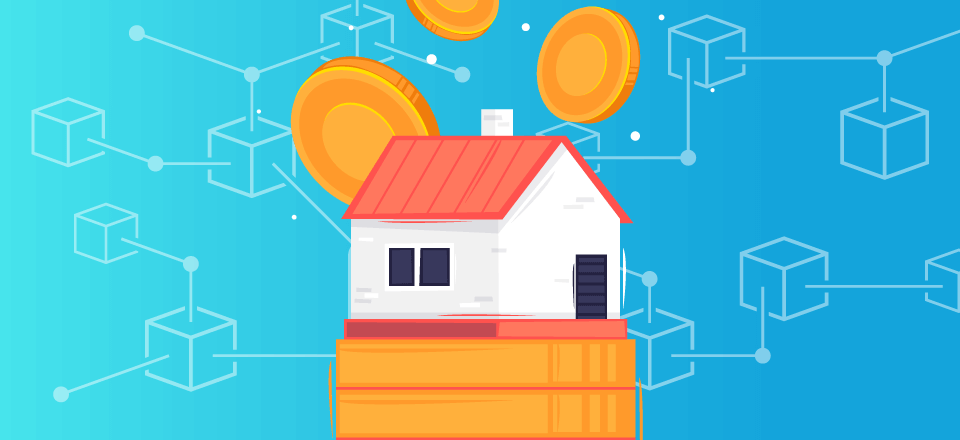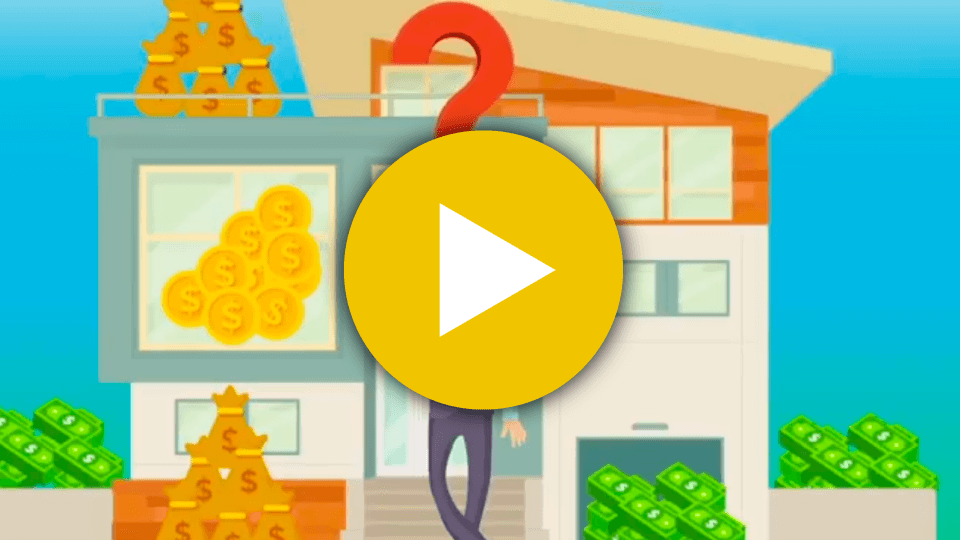
What Is Blockchain?
In order to understand the effect that blockchain technology will ultimately have on the mortgage industry and the homebuyer, we need to have a better understanding of what blockchain is in the first place. For most people, blockchain is synonymous with bitcoin. That’s unfortunate. While they’re related, they’re not the same.
Blockchain is a decentralized ledger – a system that allows data to be stored, shared, and verified, without any central ownership of that data. One of the best explanations is to think of blockchain like the Internet, and bitcoin as email. There’s a lot more to the Internet than just email, although it is undoubtedly one of the most important capabilities fostered by the technology. In the same way, bitcoin relies on the blockchain, but blockchain is much, much more than bitcoin (or any other cryptocurrency).
How Does Blockchain Relate to Home Mortgages?
As a homebuyer, you’ll approach at least a handful of lenders in your quest to obtain financing to buy a home. You’ll need to have a great deal of information in hand, and you’ll need to be patient – the average home loan can take up to 30 days to be approved. The process itself can actually take about 60 days from the time a seller accepts your offer until the sale is completed. That’s two entire months filled with – what?
Waiting.
Really, the mortgage approval process is little more than a chain of information sharing. There are many parties involved, including financial, legal, and real estate intermediaries. Each of these is responsible for part of the process, but the issue is that the flow of information is slow, and the outmoded processes are time consuming. There’s also the fact that every single intermediary in the mix adds to the cost you ultimately pay. It’s all rolled into your mortgage, or represented in closing costs, and the like.
How will blockchain technology alter this? While there is little that blockchain can do about the housing shortage, there is a lot that can be done when it comes to streamlining the currently time-consuming process of buying a home. As TechCrunch reports, “it will have a great impact on the financial verification element of the sale process itself. At current, most buyers and sellers make use of escrow and title companies for third-party verification – a safety net to make sure both parties keep their end of the deal, as well as to reduce the risk of fraud.”
For those who’ve done any exploring within the world of blockchain, that should sound familiar. The technology was purpose built for exactly that – to reduce risk, and to improve security. The impact of blockchain within the mortgage process could go so far as to eliminate the need to use any third-parties at all. Again, the only reason that escrow is used at all is because there is the risk that a homebuyer will back out, or that they will not have the financial backing to follow through on their offer.
Verification
With blockchain, verifying that funding is in place is a simple matter requiring nothing more than a smart contract – something that can take just seconds to complete, and at a fraction of the cost of going through escrow and working with a title company. Forbes even points out that escrow companies could become obsolete as blockchain continues to make inroads into the mortgage process.
That brings us to another potential way that blockchain technology might revolutionize the mortgage process. Currently, title companies are used to verify that the claim to ownership of the home and land is free and clear of encumbrances, and mortgage companies require title insurance to protect them against risk in this area. What is a title but a record or a transaction? Blockchain was built to safeguard just such records, and to share that information with those in need quickly and efficiently.
With blockchain, a mortgage company could tell within seconds about the condition of a property’s title, if there were any outstanding liens or claims of ownership, or other hurdles that might prevent the land from being successfully sold. And, that verification could be done at little to no cost. Compare that to the time and money sink that is the title verification and insurance process as it stands today.
The Ultimate Takeaway for Homebuyers
If you’re contemplating buying a home, then blockchain technology has a lot of benefits to offer. The ultimate takeaway for homebuyers is that this technology can:
• Reduce the costs incurred in the mortgage process itself
• Reduce the time required to obtain a mortgage, potentially reducing two months to just a few days
• Gain access to more accurate information throughout the process thanks to smart contracts
• Instantly verify information as being accurate thanks to secure ledger technology
There is one additional potential change here. Blockchain may actually empower homebuyers by opening up additional options for financing. Rather than being forced to work with big banks and home mortgage lenders, aspiring home buyers could take advantage of blockchain-backed peer-to-peer lending services that allow investors to make fractional investments with reduced risk. This would offer significant benefit to both homeowners and to investors, providing buyers with access to much cheaper rates, while offering investors an additional stream of income.

